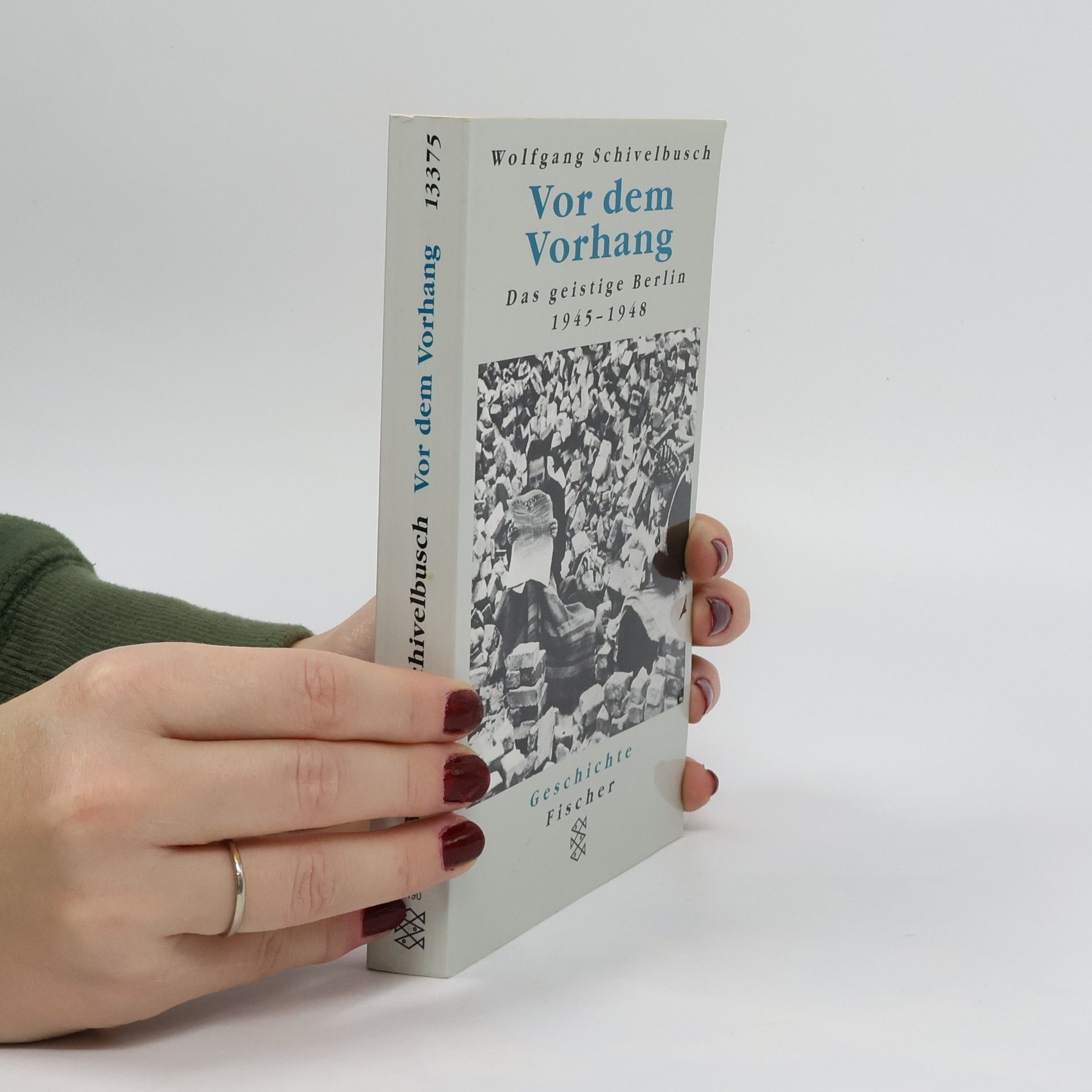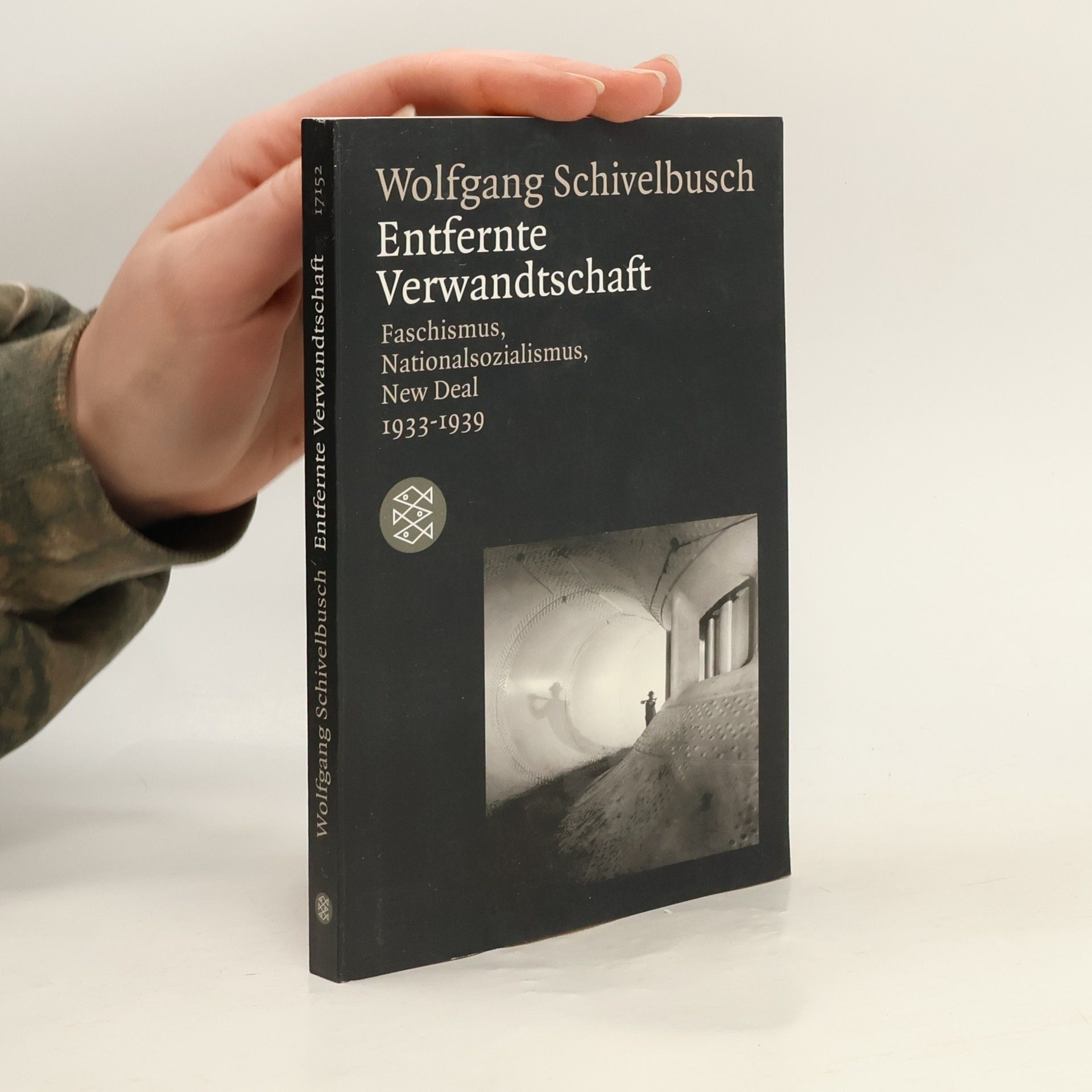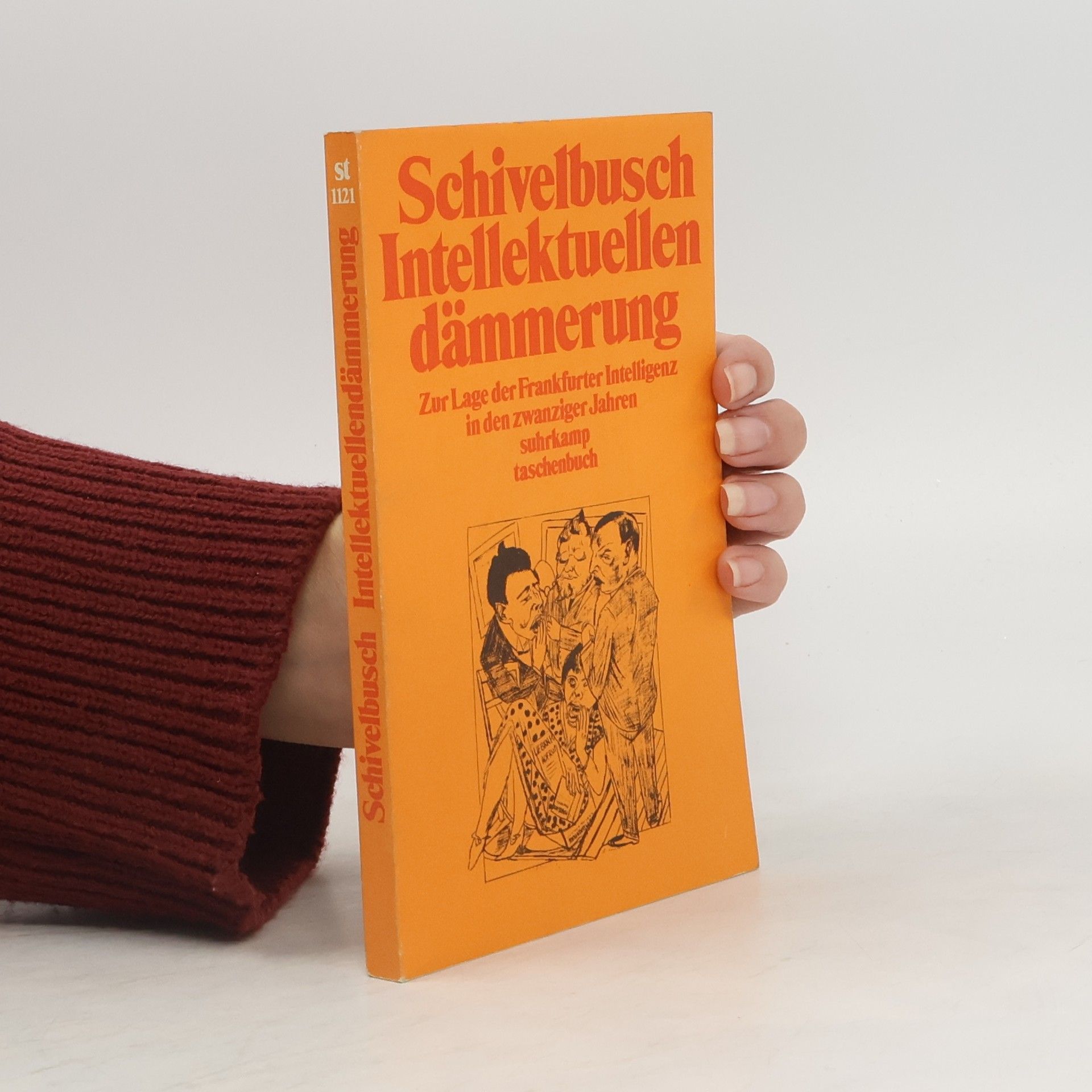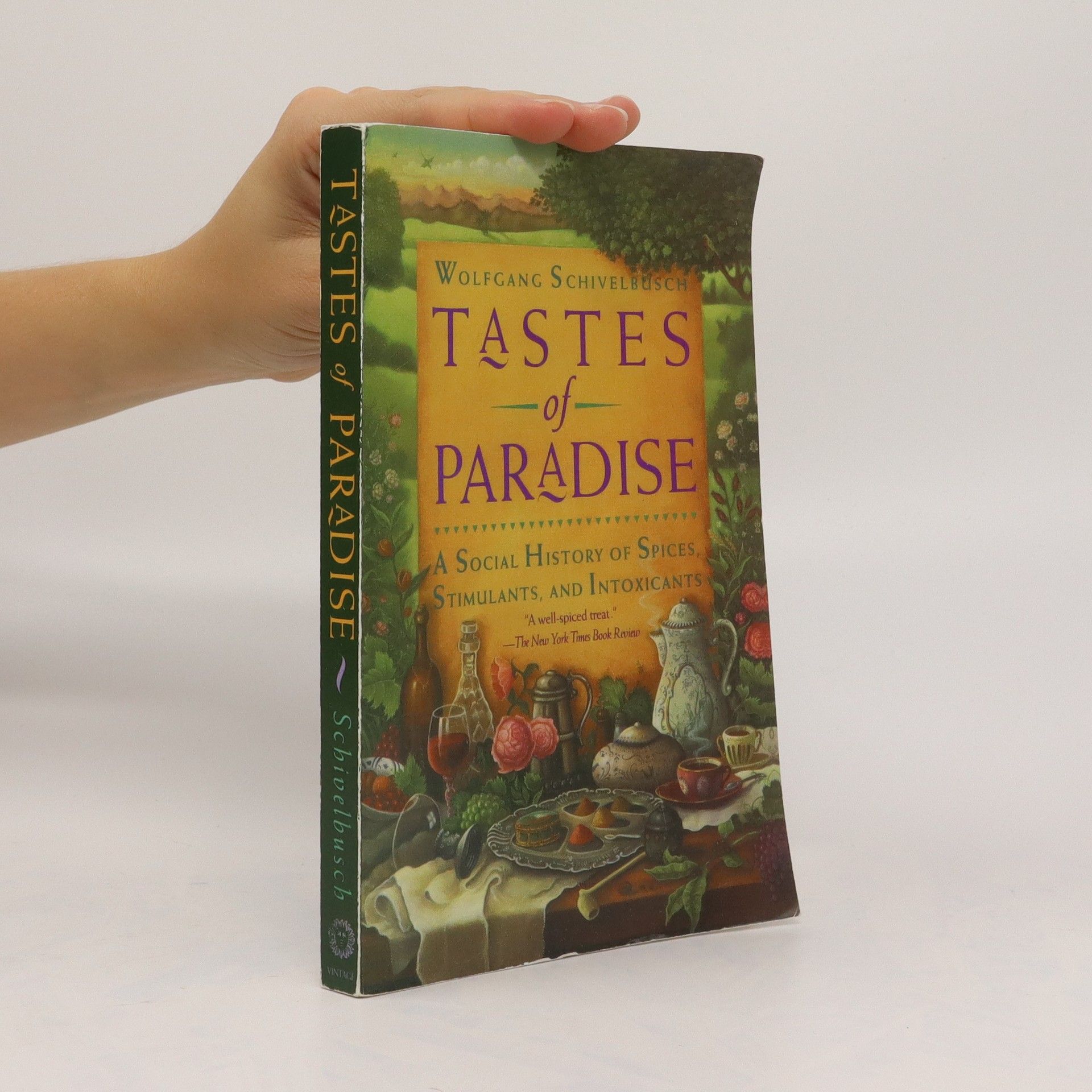From the extravagant use of pepper in the Middle Ages to the Protestant bourgeoisie's love of coffee to the reason why fashionable Europeans stopped sniffing tobacco and starting smoking it, Schivelbusch looks at how the appetite for pleasure transformed the social structure of the Old World. Illustrations.
Wolfgang Schivelbusch Libri






Geschichte der Eisenbahnreise
- 222pagine
- 8 ore di lettura
In seinem elegant geschriebenen Klassiker ›Die Geschichte der Eisenbahnreise‹ erzählt der große Kulturhistoriker Wolfgang Schivelbusch, wie entscheidend die größte Innovation des 19. Jahrhunderts das Leben der Menschen in der Moderne geprägt hat. Die Erfindung der Eisenbahn war ein entscheidender Moment in der Geschichte der Technik. Sie veränderte die Wahrnehmung von Raum und Zeit grundlegend und markiert eine neue Phase im Zivilisationsprozess. Zeitgenossen sorgten sich um die gesundheitlichen Folgen – wären Menschen in der Lage, die neuen Geschwindigkeiten zu verkraften? Wolfgang Schivelbusch zeigt am Beispiel der Eisenbahn, wie neue Technologien und Veränderungen in der Psyche der Menschen zusammenhängen – und reflektiert in einem neuen, 2014 verfassten Vorwort auch die Folgen der digitalen Revolution. Ein spannender und anregender Essay für alle, die sich für die Auswirkungen neuer Technologien auf Mensch und Gesellschaft interessieren.
Entfernte Verwandtschaft
Faschismus, Nationalsozialismus, New Deal 1933-1939
- 222pagine
- 8 ore di lettura
Roosevelt-Amerika und sein Reformprogramm der 1930er Jahre, der „New Deal“, gelten noch immer als die gelungene Alternative und glückliche Gegengeschichte zur europäischen Katastrophe des Faschismus und Nationalsozialismus. Demgegenüber stellt Wolfgang Schivelbusch noch einmal die schon in den 30er Jahren diskutierte, seit 1945 jedoch verdrängte Frage, ob der Erfolg des „New Deal“ nicht gerade damit zu tun hatte, dass er wesentliche ökonomische, soziale und massenpsychologische Elemente von seinen totalitären Konkurrenten entliehen hat. Der Autor versucht hier, das Verhältnis von liberaler Demokratie und rechten Diktaturen nicht von 1945 aus, sondern aus der Perspektive von 1929 zu begreifen und kommt zu verstörenden Ergebnissen.
Das verzehrende Leben der Dinge
- 189pagine
- 7 ore di lettura
Ist er ein gutes Stück mit ihm gelaufen, dann hat der Fuß den Schuh zerbeult. Doch auch der Schuh kann dem Fuß zusetzen und ihm Blasen aufdrücken. Wolfgang Schivelbuschs Buch handelt vom wechselseitigen Verhältnis des Menschen zu den Dingen, das man als endlose Wiederholung von Schöpfung, Gebrauch, Konsum und Zerstörung verstehen kann. Schivelbusch verfolgt die Symbiose von Mensch und Ding in der Geschichte der Ideen und der Wissenschaft. Dabei gelangt er zu so überraschenden wie elementaren Einsichten über die Grundlagen unserer Zivilisation und der daraus entstandenen Volkswirtschaften – und erweist sich als einer der originellsten Historiker unserer Zeit.
Die Kultur der Niederlage
- 464pagine
- 17 ore di lettura
Zehn Jahre nach dem letzten großen Zusammenbruch, dem des sowjetischen Imperiums, scheint die Zeit reif für eine Reihe historischer Fragen. Destilliert aus der Geschichte der drei Niederlagenklassiker – des amerikanischen Südens nach 1865, Frankreichs nach 1871 und Deutschlands nach 1918 –, lassen sie sich etwa so formulieren: Wie wurden im Zeitalter der Erlöserideologie des Nationalismus große Zusammenbrüche erlebt? Welche Mythen von Verrat oder Heroisierung bildeten sich dabei? Und welcher Zusammenhang besteht zwischen dem äußeren Unterliegen und jenen inneren Revolutionen, die der verlorene Krieg überall zur Folge hat? Wolfgang Schivelbusch ist diesen Fragen nachgegangen, und er zeichnet die aus tiefer Demütigung kommenden Energieschübe nach, die Niederlagen bringen. So legten sich die amerikanischen Südstaaten nach dem Bürgerkrieg erfolgreich ein legendenhaftes Image zu, das unter anderem «Vom Winde verweht» und seine Plantagenromantik schuf; so kam es in Frankreich nach 1871 zu umfassenden politischen und kulturellen Neuerungen; so brach das Deutsche Reich, nachdem der Erste Weltkrieg verloren war, auf etlichen Feldern in eine kraftvolle Moderne auf. Schivelbuschs Buch wird Staub aufwirbeln, auch weil es voller aktueller Bezugspunkte ist. Und es verweist auf die eigentümliche Stärke der Besiegten: dass sie früher und besser wissen, was die Stunde geschlagen hat.
Lichtblicke
- 229pagine
- 9 ore di lettura
Die Geschichte der künstlichen Helligkeit ist von einem einzigartigen Optimismus geprägt: Man wollte die Nacht zum Tage machen. Der renommierte Kulturhistoriker Schivelbusch beschreibt die technische und ökonomische Geschichte ebenso wie die Folgen: die Veränderung der Wahrnehmung, die Straßenlaterne als Mittel polizeilicher Überwachung, das neue Nachtleben in Salons und Theatern - ein klassisches Stück Aufklärung.
Zweimal innerhalb von fünfundzwanzig Jahren wurde die Bibliothek von Löwen, eine der reichsten und berühmtesten Europas, durch einen von Deutschen gelegten Brand zerstört, Hunderttausende von Handschriften und Inkunabeln wurden zerstört. Die Löwener Bibliotheksruine wurde weit über Europa hinaus zum Symbol des hässlichen Deutschland. Wolfgang Schivelbusch hat die Episode aus der Zeit der beiden Weltkriege rekonstruiert, die sich am Ende unseres Jahrhunderts wie eine Parabel auf dessen Beginn liest
Die andere Seite
Leben und Forschen zwischen New York und Berlin
Wolfgang Schivelbusch blickt auf die Zeiten seines Lebens zurück und formt daraus zugleich eine kulturgeschichtliche Biographie der Bundesrepublik. Ein Leben, das durchweg in Beziehung zu den USA gestanden die GIs im Frankfurter Freibad, denen er als Kind bewundernd gegenüberstand, die Studentenrevolte und sein Aufbruch in das gritty New York von 1970 und das intellektuelle Leben dort, der Blick aus seiner Wohnung auf das World Trade Center bis zur Rückkehr nach Deutschland. Schivelbusch bringt in diesem Buch die Themen zusammen, die ihn sein Leben lang beschäftigt die Beziehung von Geist und Macht, die Kultur der Niederlage, Physiologie und Konsumtion. Als melancholisch-distanzierter Zeitzeuge beschreibt er den Weg aus der Eindeutigkeit der Nachkriegszeit zum existenziellen Unbehagen der Gegenwart auf beiden Seiten des Atlantiks. Das Buch ist Autobiographie und Zeitdiagnostik in einem.



